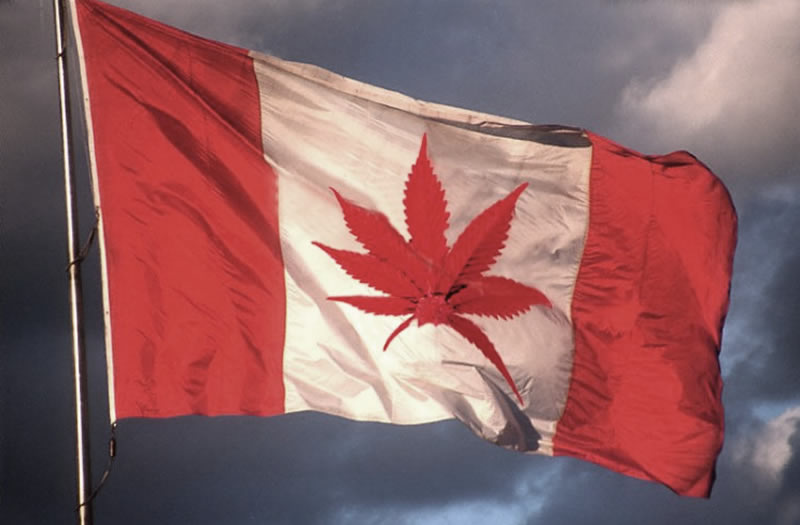
Sep 18, 2018 | Blog, News
How Much Money Can You Make Working in the Legal Marijuana Industry?
In a new analysis of legal pot’s jobs and pay scales, the marijuana head-hunting firm Vangst, which describes itself as the “Monster.com of the cannabis industry,” reports that pot is hot. The company says it expects employment in the industry to more than double next year and that salaries at licensed pot businesses are up 18 percent this year.
But pot businesses are, after all, businesses, and they have some of the same issues as any other privately-held businesses. More than one-fifth of the 1,200 firms surveyed for this report offer no employee benefits at all and more than half offer no medical, dental, and vision insurance. Those industry workers most likely to get such benefits are those in the most lucrative jobs.
Marijuana businesses also replicate wage and salary differentials common in other industries. Managers and some skilled positions can take home well north of a hundred grand a year, while hourly workers, such as trimmers and budtenders, get paid proletarian wages.
Has your provisioning business been raided by law enforcement? Remain Silent and Contact Komorn Law Immediately to protect your rights and freedom 800-656-3557.
The Vangst survey isn’t exhaustive — it doesn’t cover some mid-level jobs at grow and extraction operations or dispensaries, nor does it cover jobs that don’t directly touch on marijuana, such as publicists, accountants, and marketers — but it does provide at least a partial glimpse at the pot jobs market.
But if you’re looking for work in the legal pot industry, here’s what to expect for various positions:
Cultivation director: Oversees all cultivation operations to ensure the production of compliant and high-quality cannabis. Establishes all standard operating procedures, nutrient and harvest schedules, integrated pest management programs, hiring, training, and personnel management. Responsible for ensuring the highest levels of plant health, potency, and production.
Low: $47,000
Average: $88,000
High: $140,000
Top: $250,500
Extraction director: Oversees all cannabis extraction and refinement operations. This includes facility design, laboratory setup, standard operating procedure development, regulatory compliance, hiring, training, and personnel management. Responsible for ensuring all cannabis extracted products are produced safely, efficiently, and consistently.
Low: $47,000
Average: $72,00
High: $135,00
Top: $191,00
Compliance manager: Ensures local, state, and federal compliance with all laws and regulations. Implements a company-wide program, which includes seed-to-sale tracking and internal compliance audits. Anticipates and tracks pending and current laws and regulations. Creates new policies and procedures as necessary and ensures the staff has an understanding of all compliance requirements.
Low: $45,000
Average: $62,500
High: $81,750
Top: $149,000
Outside sales representative: Focuses on sales strategies and account management to build value in the marketplace. An Outside Sales Representative develops relationships into new accounts in order to meet sales goals and manages existing accounts using Customer Relationship Management (CRM) software. They enhance product branding and increase sales through the training and education of retail partners and customers.
Low: $28,000
Average: $58,800
High: $73,500
Top: $150,000
Dispensary manager: Oversee day-to-day operations of a medical or recreational cannabis retail location. Create standard operating procedures, develop inventory processes, and ensure dispensary is fully compliant with all state and federal regulations. Responsible for hiring, training, and managing all dispensary staff.
Low: $41,500
Average: $56,250
High: $65,400
Top: $98,000
Budtender (per hour): Provides excellent customer service to all patients and customers in medical and recreational dispensaries. Uses point of sale system and other technology to ensure all cannabis product sales are properly tracked. Provides information to customers on product choices, consumption methods, compliance, and safety. Remains up to date on all cannabis regulations to ensure compliance within the dispensary.
Low: $12
Average: $13.25
High: $14
Top: $16
Trimmer (per hour): Manicures and prepares all harvested flower product to be sold in medical and recreational cannabis retail locations.
Low: $11.50
Average: $12.25
High: $13
Top: $14.50
They did not mention one job…Taste and Quality Inspector.
I’m sure that would be a volunteer job paid in free product.
About Komorn Law
Komorn Law has represented numerous clients through the legal chaos of starting up a business in the Michigan Medical Marihuana Industry.
If you or someone you know is facing charges as a result of Medical Marijuana, DUI, Drugs, Forfeiture, Criminal Enterprise, etc. Please contact our office and ensure you’re defended by an experienced lawyer in the evolving laws.
Lead attorney Michael Komorn is recognized as an expert on the Michigan Medical Marihuana Act. He is the President of the Michigan Medical Marijuana Association (MMMA), a nonprofit patient advocacy group which advocates for the rights of medical marijuana patients and their caregivers.
Contact us for a free no-obligation case evaluation
800-656-3557.
Follow Komorn Law

Sep 17, 2018 | Blog, News
Uruguay is the first country to legalize recreational marijuana
Reported by CNN
Uruguay, which legalized the drug nationally in 2013, is in no rush. The Latin American country wants to do it the right way, and that means, at least initially, a lot of restrictions.
“They’re very aware that they’re the first in the world to do this,” said John Walsh, director for drug policy and the Andes at the Washington Office on Latin America. “They’ve run with a tightly controlled model to show the world that they have control over the system.”
That heavy handed approach means only around 14 pharmacies in the entire country sell marijuana. Most of them are clustered around the capital, Montevideo. Many other pharmacies are weary of getting into the pot-selling business, primarily because of a major financial hurdle.
Has your provisioning business been raided by law enforcement? Remain Silent and Contact Komorn Law Immediately to protect your rights and freedom 800-656-3557.
Teething problems
Pharmacies across the country act as points of sale for pot that’s been grown by just two state-licensed companies, Symbiosis and Iccorp. Buyers can purchase up to 40 grams per month. As of May, there were 24,324 registered buyers, according to IRCCA, the state department dedicated to the regulation and control of cannabis.
But because Uruguay’s economy runs on dollars, most pharmacies are routed through US banks. Those banks are forbidden by US law to serve accounts that “involve the manufacture, importation, sale, or distribution of a controlled substance.”
“The big US-based banks sent a memo to their Uruguayan counterparts, telling them they’d have to close their accounts if they proceeded,” Walsh said.
The existing pharmacies are left to resort to cash-only transactions, similar to the situation in US states like Colorado and Washington, which are managing legal marijuana industries of their own. It’s also a deterrent for other pharmacies that might have otherwise jumped on board.
“Had the obstacle not occurred, more pharmacies probably would’ve taken the plunge. Maybe dozens of others,” he said. “There aren’t nearly as many as was expected by this point.”
IRCCA is discussing how to overcome this hurdle, and Walsh said the most popular solution is to set up dispensaries separate from pharmacies. That’ll mean more points of sale, and more even distribution.
But when that happens, Walsh said, the supply could run short. Marijuana production has been erratic so far, because there are only two governmentally contracted suppliers. Uruguay is relatively inexperienced in marijuana farming, meaning some trial batches had to be rejected and recultivated.
Residents are permitted to register as “homegrowers” or form “grow clubs” to cultivate up to 480 grams per person each year. But these homegrowers can’t sell to pharmacies.
But all things considered, the project is going well, said Hannah Hetzer, senior international policy manager at the Drug Policy Alliance. “It’s too early to make any concrete evaluations,” she said, “but the sky hasn’t fallen.”
Beating the black market
Regulated cannabis seems to have hindered the black market, which was one of the main aims of legalization. According to IRCCA’s May figures, about 55% percent of marijuana users are partaking within the regulated system. “It takes a while for the illicit market to reduce,”
Hetzer said.
The government controls the pricing of the product at pharmacies, and has priced it on a par with its rate on the black market — at around $1.40 per gram.
The low price discourages illegal competition because there’s not much profit to be made, said Michael Komorn, a criminal defense lawyer and president of the Michigan Medical Marijuana Association.
But the black market may still thrive with tourists. Uruguayan law forbids non-residents from purchasing marijuana.
Still, the experts agree that the early signs are positive, even with the banking issue.
That problem may even be solved by working with Canadian banks, an opportunity reinforced by Canada becoming the second country to legalize recreational pot in June this year.
Along with Canada, Uruguay has taken the role of an international leader in this field, Komorn said. “It’s going to be good for the country,” he predicted. “It’s the beginning of the spark of an economic renaissance.”
by Talib Visram @CNNMoney
September 16, 2018: 12:40 PM ET
See the Story Here
About Komorn Law
Komorn Law has represented numerous clients through the legal chaos of starting up a business in the Michigan Medical Marihuana Industry.
If you or someone you know is facing charges as a result of Medical Marijuana, DUI, Drugs, Forfeiture, Criminal Enterprise, etc. Please contact our office and ensure you’re defended by an experienced lawyer in the evolving laws.
Lead attorney Michael Komorn is recognized as an expert on the Michigan Medical Marihuana Act. He is the President of the Michigan Medical Marijuana Association (MMMA), a nonprofit patient advocacy group which advocates for the rights of medical marijuana patients and their caregivers.
Contact us for a free no-obligation case evaluation
800-656-3557.
Follow Komorn Law

Sep 14, 2018 | Blog, News
Canadians who work in the marijuana industry — and those who invest in the booming pot sector — risk a lifetime ban on travel to the U.S.
That’s not nice eh…
Posted on Politico 9/13/18
Canadians who work in the marijuana industry — and those who invest in the booming pot sector — risk a lifetime ban on travel to the U.S., according to a senior official overseeing U.S border operations.
As Canada prepares to become the world’s only major industrialized nation to legalize retail marijuana sales starting Oct. 17, the Canadian cannabis sector is projected to generate billions of dollars of revenue in coming years and Canadians have flocked to take jobs and buy stocks in the burgeoning industry. But the move has potential to disrupt border crossings between the U.S. and Canada for travelers who run afoul of American drug laws, even if their activities are legal in Canada.
The U.S. Customs and Border Protection agency will continue to apply long-standing U.S. federal laws and regulations that treat marijuana as a banned substance — and participants in the cannabis industry as drug traffickers — who are inadmissible into the U.S. Although some U.S. states have eased marijuana laws, the U.S. continues to maintain a federal prohibition that applies at the border, said Todd Owen, executive assistant commissioner for the Office of Field Operations, who gave POLITICO a detailed preview of how CBP will apply longstanding rules.
Here’s exactly how it would work at the border: CBP officials are not planning to go out of their way to interrogate every Canadian traveler about marijuana use. However, other factors may cause them to raise the topic.
Charged with distracted driving or driving under the influence of marijuana or alcohol? Contact Komorn Law for a free case evaluation 800-656-3557.
“Our officers are not going to be asking everyone whether they have used marijuana, but if other questions lead there — or if there is a smell coming from the car, they might ask,” Owen said. Likewise, marijuana residue, which can linger for weeks inside a car, could be detected by CBP inspection dogs and lead to further questioning, he noted. If asked about past drug use, travelers should not lie, he said. “If you lie about it, that’s fraud and misrepresentation, which carries a lifetime ban,” Owen said.
If a traveler admits to past use of any illegal drugs, including marijuana, the traveler will be found to be inadmissible into the United States. CBP typically will allow them the opportunity to “voluntary withdraw” from the border — or face an “expedited removal.” Whether or not the traveler enters the U.S., a record will be kept by CBP and that traveler will not be allowed to return to the U.S. The traveler will have the opportunity to apply for a waiver from a lifetime ban, which costs U.S. $585 and requires several months to process. The waivers are issued at the discretion of CBP.
CBP agents commonly ask travelers what they do for a living. Canadians who work in the marijuana industry will not be permitted to enter the U.S. “If you work for the industry, that is grounds for inadmissibility,” Owen said.
By LUIZA CH. SAVAGE
09/13/2018 04:33 PM EDT
https://www.politico.com/story/2018/09/13/canada-weed-pot-border-783260
About Komorn Law
Komorn Law has represented numerous clients through the legal chaos of starting up a business in the Michigan Medical Marihuana Industry.
If you or someone you know is facing charges as a result of Medical Marijuana, DUI, Drugs, Forfeiture, Criminal Enterprise, etc. Please contact our office and ensure you’re defended by an experienced lawyer in the evolving laws.
Lead attorney Michael Komorn is recognized as an expert on the Michigan Medical Marihuana Act. He is the President of the Michigan Medical Marijuana Association (MMMA), a nonprofit patient advocacy group which advocates for the rights of medical marijuana patients and their caregivers.
Contact us for a free no-obligation case evaluation
800-656-3557.
Follow Komorn Law

Sep 13, 2018 | Blog, Medical Marijuana, News
Washington, D.C. – The House Judiciary Committee today approved by voice vote the Medical Cannabis Research Act of 2018 (H.R. 5634). This narrowly tailored, bipartisan bill is designed to facilitate and encourage federally-approved clinical trials testing the potential medicinal effects of chemicals found in the marijuana plant.
Specifically, the Medical Cannabis Research Act increases the number of federally-approved manufacturers of research-grade marijuana from one to three, and would set strict criteria for those manufacturers to obtain and renew their registrations. Currently, only the University of Mississippi is permitted to grow research-grade marijuana.
The legislation also makes clear under the law that Department of Veterans Affairs health care providers are allowed to provide information about federally-approved cannabis clinical trials to their veteran patients. By providing both a sufficient supply of research-grade product and a sufficient supply of people to participate, this bill will help produce scientific data about whether or not the chemicals in marijuana can be medically helpful.
Congressman Matt Gaetz (R-Fla.), chief sponsor of the Medical Cannabis Research Act, and House Judiciary Committee Chairman Bob Goodlatte (R-Va.), an original cosponsor of the bill, praised today’s approval of the legislation in the statements below.
Charged with distracted driving or driving under the influence of marijuana or alcohol? Contact Komorn Law for a free case evaluation 800-656-3557.
Chairman Goodlatte: “While there are many varying opinions on the issue of marijuana, one thing we all can agree on is that we need qualified researchers to study the science to determine if there are any potential medicinal benefits to chemicals derived from cannabis. I thank Congressman Gaetz for working with me on crafting the Medical Cannabis Research Act to improve and encourage the study of medical marijuana. I applaud the House Judiciary Committee for approving this bipartisan bill today.”
Congressman Gaetz: “I am glad that the Judiciary Committee has reported the Medical Cannabis Research Act favorably, sending it to the House for a vote. For too long, Congress has faced a dilemma with cannabis-related legislation: we cannot reform cannabis law without researching its safety, its efficacy, and its medical uses — but we cannot perform this critical research without first reforming cannabis law. The Medical Cannabis Research Act helps break that logjam, allowing researchers to study medical cannabis without fear of legal jeopardy. I am grateful for the support of Chairman Bob Goodlatte, who was instrumental in developing this legislation, and for the committee’s bipartisan vote to support medical research. This vote will help unlock American innovation and discovery, and help researchers bring the cures of the future a little closer to reality.
Medical Cannabis Research Act of 2018 (H.R. 5634).
About Komorn Law
Komorn Law has represented numerous clients through the legal chaos of starting up a business in the Michigan Medical Marihuana Industry.
If you or someone you know is facing charges as a result of Medical Marijuana, DUI, Drugs, Forfeiture, Criminal Enterprise, etc. Please contact our office and ensure you’re defended by an experienced lawyer in the evolving laws.
Lead attorney Michael Komorn is recognized as an expert on the Michigan Medical Marihuana Act. He is the President of the Michigan Medical Marijuana Association (MMMA), a nonprofit patient advocacy group which advocates for the rights of medical marijuana patients and their caregivers.
Contact us for a free no-obligation case evaluation
800-656-3557.
Follow Komorn Law

Sep 13, 2018 | Blog, News
Speakers open up about Howell Judge Theresa Brennan in town hall meeting
Ken Palmer, Lansing State JournalPublished 9:45 p.m. ET Sept. 12, 2018
“Brennan treated me horribly in the courtroom,” the Livingston County woman testified during a town hall-style meeting at the Historic Livingston County Courthouse. “She laughed at me when I was having an anxiety attack.”
Her attorney was “petrified” of Brennan, who allowed her “ex” to speak in the courtroom but told her to “shut up,” she said.
Numerous other speakers described similar problems with Brennan during the 2½-hour meeting, which was organized by state Sen. Joe Hune, R-Fowlerville, and state Reps. Lana Theis, R-Brighton, and Hank Vaupel, R-Fowlerville.
The lawmakers said they wanted to give the public a chance to relate their experiences with Brennan while long-running inquiries of the judge by the Judicial Tenure Commission and the Michigan State Police drag on.
Google News Search Results
Speakers open up about embattled Judge Theresa Brennan during …
HOWELL – Vickie Sherrill stood before a trio of lawmakers on … of the judge by the Judicial Tenure Commission and the Michigan State Police …
Dozens speak out against Judge Theresa Brennan who is off the job …
HOWELL, Mich. (WXYZ) – Local state lawmakers in Livingston County held a town hall for people to speak out against Judge Theresa Brennan.
Testimony At Town Hall Meeting Not Admissible In Brennan Complaint
WHMI-Sep 11, 2018
A town hall meeting Wednesday in Howell will solicit feedback about … system and, in particular, embattled 53rd District Court Judge Theresa Brennan. … against Brennan filed by the Michigan Judicial Tenure Commission.
Legislators to host town hall to collect evidence, feedback on …
Livingston Daily-Sep 5, 2018
… County Court House, located at 200 E. Grand River Road, Howell in the top … “They don’t like that she is still called “Honorable Judge Brennan. … contact Hune at (855)-JOE-HUNE or at SenJHune@senate.michigan.gov or …
Town Hall Planned At Historic Courthouse On Actions Of Judge Brennan
WHMI-Sep 5, 2018
Charged with distracted driving or driving under the influence of marijuana or alcohol? Contact Komorn Law for a free case evaluation 800-656-3557.
About Komorn Law
Komorn Law has represented numerous clients through the legal chaos of starting up a business in the Michigan Medical Marihuana Industry.
If you or someone you know is facing charges as a result of Medical Marijuana, DUI, Drugs, Forfeiture, Criminal Enterprise, etc. Please contact our office and ensure you’re defended by an experienced lawyer in the evolving laws.
Lead attorney Michael Komorn is recognized as an expert on the Michigan Medical Marihuana Act. He is the President of the Michigan Medical Marijuana Association (MMMA), a nonprofit patient advocacy group which advocates for the rights of medical marijuana patients and their caregivers.
Contact us for a free no-obligation case evaluation
800-656-3557.
Follow Komorn Law

Sep 11, 2018 | Blog, News
THETFORD TOWNSHIP (WJRT) – Thetford Township Police Chief Robert Kenny was arrested this week in connection with an investigation into surplus military equipment his department received.
Genesee County Sheriff Robert Pickell scheduled a press conference for Thursday morning to discuss “the arrest and charges” Kenny is facing.
Court records show Kenny is charged with embezzlement and obstruction of justice dating back to 2012.
The sheriff’s office has been investigating Thetford Township’s use of more than $1 million worth of surplus military equipment obtained through the Law Enforcement Supports Office over the past decade.
Kenny obtained the equipment, including a large forklift down to several used sleeping bags, on behalf of the township’s two-person police department.
Thetford Township Supervisor Gary Stevens has challenged Kenny for months to account for the whereabouts of the equipment. Much of it had been stored on private property inside and outside the township.
Earlier this year, a resident dropped off a large forklift and other equipment at the township hall after storing it on his land for years. The forklift then ended up in Stevens’ driveway a few weeks later, leading to a $1,300 towing bill to remove it.
Kenny also turned in an envelope this spring containing nearly $5,000, which he told officials was the proceeds from selling some of the equipment for scrap metal.
In April, the sheriff’s office raided the Thetford Township offices and seized several boxes of evidence.
The Thetford Township Board had planned to seek a public vote in November on whether residents wanted to continue the police department, but those plans were nixed when board members learned it was too late to get a question on the ballot.
Report From ABC12 News Team (8/22/2018)
Thetford Township has to return its military surplus after police chief arrest
Michigan Radio By TRACY SAMILTON 9/11/18
Thetford Township will have to return its federal military surplus – if it can locate it – to the government, if there are no other police departments that want it.
That’s after Thetford Township police chief Robert Kenny was arrested for allegedly embezzling from the program.
Kenny acquired a large amount of federal military surplus since 2012 – nearly 4,000 items, with a retail value of $2.7 million.
He was arrested in late August for allegedly pocketing the proceeds from selling some of it.
Larry Goerge is the state coordinator for the surplus program. He says today, it’s unlikely Kenny would have been able to get so much.
“There’s been a lot of changes in the program since he was originally participating,” says Goerge. “We’ve covered a lot of those little loopholes that departments would have in the past.”
Kenny faces up to five years in prison for the embezzlement. He was also charged with obstruction of justice after he staged a fake “discovery” of missing money.
Yet another problem came to light after Kenny’s arrest. The police department wasn’t paying back a loan on a truck it purchased. The loan came from the township’s sewerage department.
Township supervisor Gary Stevens says he may have to reduce the hours of one of the police department’s two remaining employees, in order to fix the budgets for the police department and the sewerage department.
There are some other consequences from Kenny’s arrest. A day after the arrest, the township’s clerk, a Kenny supporter, resigned.
There may have to be a special election to replace her, because township trustees who supported Kenny wanted to hire one person and trustees who were instrumental in exposing Kenny’s alleged crimes wanted another.
About Komorn Law
Komorn Law has represented numerous clients through the legal chaos of starting up a business in the Michigan Medical Marihuana Industry.
If you or someone you know is facing charges as a result of Medical Marijuana, DUI, Drugs, Forfeiture, Criminal Enterprise, etc. Please contact our office and ensure you’re defended by an experienced lawyer in the evolving laws.
Lead attorney Michael Komorn is recognized as an expert on the Michigan Medical Marihuana Act. He is the President of the Michigan Medical Marijuana Association (MMMA), a nonprofit patient advocacy group which advocates for the rights of medical marijuana patients and their caregivers.
Contact us for a free no-obligation case evaluation
800-656-3557.
Follow Komorn Law






